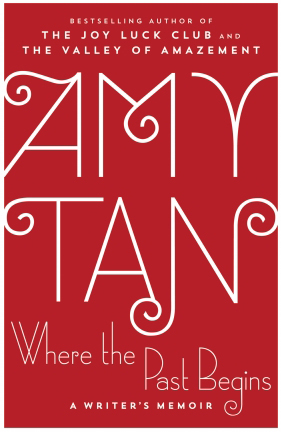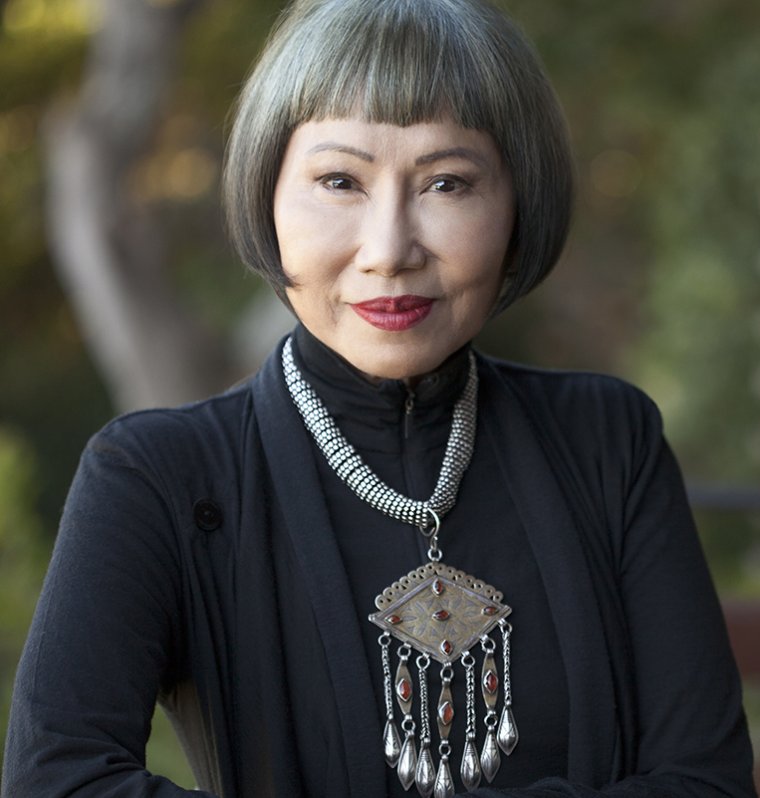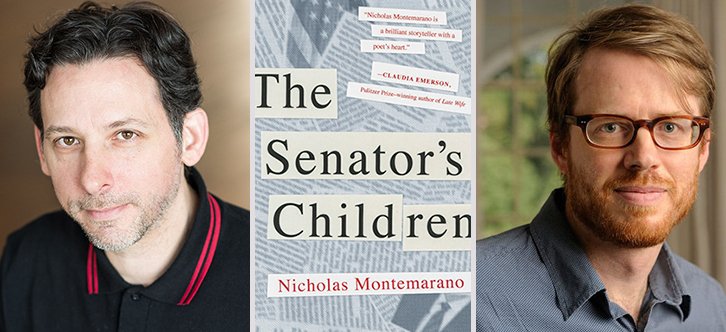In William Stoner and the Battle for the Inner Life, the latest entry in Ig Publishing’s Bookmarked series, Steve Almond writes about John Williams’s 1965 novel Stoner, which, despite positive reviews, was not a popular success until it was rediscovered in the early 2000s and went on to become an international bestseller. The plot of the novel is straightforward enough—“Stoner, the only son of subsistence farmers, attends college, unexpectedly falls in love with literature, and becomes a teacher; he endures a disastrous marriage, a prolonged academic feud, and a doomed love affair, then falls ill and dies,” Almond writes—but in William Stoner and the Battle for the Inner Life, the author sees the novel as a personal reckoning, a catalyst for sharing his own struggles as a writer, father, and husband grappling with his own mortality. Below is an excerpt from the book, published by Ig on June 11.
![]()
Let Us Now Praise Unfamous Men
In the autumn of 1995, at the age of twenty-eight, I abandoned a career in journalism to pursue the dubious goal of writing short stories. My selection of a graduate program was eased considerably by the paucity of my talent. I applied to twenty schools, was admitted to three, and offered financial aid by one, a state university nestled in the polite and muggy suburbs of the South.
I rented a carriage house whose central allure was a gleaming antique bathtub that seemed to portend my future. I yearned to become the sort of writer who spent hours bleeding truth onto the page before collapsing into a scalding soak. Everyone in the program dreamed the same dream. If we worked hard enough, if we read the right books, if we charmed the prevailing mentors, our work would be plucked from the slush pile, gussied up for publication, and bound into handsome volumes by the Bad Parents of New York City. At precisely this point, everyone who had ever rejected us would be forced to admit the terrible mistake they had made.
I was particularly inept at disguising my aims, and would eventually become so reviled that the fiction faculty barred me from attending workshops and refused to read my thesis. All that comes later. I mention these circumstances only to suggest my frame of mind when I first encountered Stoner.
This happened a few months into the program, at a party hosted by my friend Dan Belkin. We were getting to know one another with the help of some affable drugs when he asked if I’d ever read Stoner. I eventually discerned that he was referring to a novel, which I assumed would be a tale of hydroponic hi-jinx. It is not. The author, John Williams, begins:
William Stoner entered the University of Missouri as a freshman in the year 1910, at the age of nineteen. Eight years later, during the height of World War I, he received his Doctor of Philosophy degree and accepted an instructorship at the same university, where he taught until his death in 1956. He did not rise above the rank of assistant professor, and few students remembered him with any sharpness after they had taken his course…. Stoner’s colleagues, who held him in no particular esteem when he was alive, speak of him rarely now; to the older ones, his name is a reminder of the end that awaits them all, and to the younger ones it is merely a sound which evokes no sense of the past and no identity with which they can associate themselves or their careers.
![]()
To understand how audacious I found this opening, you would have to know how loyal I was, back then, to the dogma of the MFA program, the smothering exhortations to show, don’t tell. Because I lacked confidence in the stories I was trying to write, because those stories were at best half-formed, I reliably plunged my readers into the consciousness of some poor schlub in the midst of an unspecified crisis. I assumed this chaos would beguile readers, that they would hunger for all the facts I withheld from them. I was writing almost entirely out of my insecurity, which explained the inflamed prose, the preposterous plot twists, and glib dialogue.
It wasn’t just the flat expository style of Stoner that flummoxed me. Williams had opened his novel by drily announcing the insignificance of his protagonist. I assumed the point of literature was to document the lives of the driven and depraved, the lawless and lust-riven, in short: the memorable.
It hadn’t occurred to me that the story of every life is, from a cosmic perspective, one of obscurity. You are alive for some brief span, then you die. The great mirage of human consciousness is that our striving deeds will render us immortal. It might be said that I had confused literature with history, which serves as the de facto press office of the infamous. This confusion redounded to my own corrupt ambitions. I wanted from literature to be known by the world. I had missed the point: Literature exists to help people know themselves.
None of this occurred to me on that first night. I remember only that I read Stoner in a spell, and that I wept a good deal, inexplicably though not unhappily.
![]()
The novel’s central events can be summarized in a single sentence: Stoner, the only son of subsistence farmers, attends college, unexpectedly falls in love with literature, and becomes a teacher; he endures a disastrous marriage, a prolonged academic feud, and a doomed love affair, then falls ill and dies.
The book refuses to hurtle Stoner toward a traditional conception of heroism. He does not fight in a war or launch a doomed expedition. He does not ascend the ranks or vanquish his foes or risk all for love. He is often excruciatingly passive, constrained by the conventions of his age and the inhibitions of his character. Stoner enthralls precisely because it captures with unbearable fidelity the moments of internal tumult that mark every human life.
Sometimes these are moments of regret or guilt or disappointment. Just as often they are moments of ecstatic revelation. The first of these occurs his sophomore year in college, during a required survey of English literature. To this point, the course has bedeviled Stoner. He reads and rereads the assignments but can find no meaning in the words. Toward the end of one class, his professor, an imperious figure named Archer Sloane, reads Shakespeare’s 73rd Sonnet and demands to know what Stoner makes of it.
The poem is genuinely bewildering. The basic idea, barely visible beneath a tangle of naturalistic metaphor and vexing pronouns, is that our apprehension of mortality should inspire us to cherish the world of our youth. Stoner sits, awkwardly wedged into his wooden desk. The professor reads the poem again, this time tenderly, “as if the words and sounds and rhythms had for a moment become himself.”
Stoner can summon no words, but the world around him suddenly takes on a phantasmagoric intensity. Light slants from the windows and settles upon the faces of his fellow students. He watches one blink and notices as a thin shadow falls upon a cheek “whose down has caught the sunlight.” Stoner marvels at the intricacy of his hands. He feels the blood flowing invisibly through his arteries. For several minutes after the others have left he sits dazed. He wanders the campus, taking in “the bare gnarled branches of the trees curled and twisted against the pale sky.” He regards his fellow students curiously, “as if he had not seen them before, and felt very distant from them and very close to them.”
The compression of sensual detail makes this passage read like a reverie, but something quite simple is happening: William Stoner is suddenly paying attention to his life.
![]()
It took me several years to absorb the essential lesson of Stoner, which is a precise repudiation of the idea I clung to back then. What matters is not the quality of a particular life, but the quality of attention paid to that life.
![]()
I didn’t realize it at the time, but this was the reason I had fled journalism in the first place. As an investigative reporter, I was expected to document the escapades of notable scoundrels, dirty cops, con men, the whole sordid smorgasbord. My editors wanted an accretion of damning fact. But I kept pondering motive; what had possessed these people to self-destruct? “The interior life is a real life,” as James Baldwin observes, “and the intangible dreams of people have a tangible effect on the world.”
This line of inquiry did not sit well with my bosses. I can still remember the reaction offered by the owner of the newspaper chain for whom I worked. He had flown into town, as he did every year, to ball us out for insufficient zeal. These reprimands usually happened at a fancy restaurant, where we could feel guilty for dining on his corporate credit card. When I announced my departure for grad school, he glared at me for a good half minute. “You want to write books?” he said finally.
I didn’t know what to tell him. I just had a hunch I’d been investigating the wrong part of the human arrangement.
Stoner confirmed that hunch, more forcefully than any book I’d ever read. It exerts a stubborn grip on readers like me because it offers something increasingly rare in modern life: a dogged devotion to the inner life. By “inner life,” I simply mean the private realm of thought and feeling through which we come to know ourselves. I stress the term because I believe our entire species is, at this perilous moment, engaged in a pitched battle for the inner life, one so pervasive it has become as invisible as air.
This struggle has been with us all along. It’s ordained by consciousness. Among all creatures, humans face a unique burden. Do we choose to face the solitude of selfhood, the misfortunes engineered by fate and folly, the many ways we disfigure love into cruelty? But over the past half century (the course of my lifetime) this struggle has degenerated into an all-out assault.
To focus on the inner life today—to read books, to think deeply, to imagine with no ulterior agenda, to reflect on painful or confusing experiences—is to defy the clamoring edicts of our age, the buy messages, the ingrained habits of passive consumption and complaint. It is not yet a crime, merely an arcane and isolating practice.
There are obvious economic explanations. Vast sectors of our economy are devoted to the magical notion that potions and products and garish spectacle can banish our shame and doubt. And thus corporations, which promote and profit by a pervasive state of agitation, must eradicate the hauntings of the inner life.
The abrupt proliferation of technological devices has offered us the illusion of a mass confessional. But our phones and laptops more often represent a refuge from the tribulation of our internal experience. We turn to them in moments of anguish, rewiring our brains to seek diversionary stimulations. The frantic beckoning of our feeds has thus become another market for distraction, an array of “platforms” upon which we perform a market-ready version of our lives.
To read Stoner today is to recognize how shallow our conception of the heroic has grown. As a nation, we worship athletes and moguls and movie stars, those who possess the glittering gifts we equate with worth and happiness. Our realpolitik is dominated by a preening demagogue birthed in the oxymoronic swamp of reality television. The fictions that shriek across our screens are paeans to reckless ambition. This mania has infiltrated even our literary culture, with agents and editors stalking “larger than life” stories ripe for cross promotion.
It’s not just that we’re all toting around omniscient devices the size of candy bars. It’s the staggering acceleration of our cognitive and emotional metabolisms: our hunger for sensation and narcissistic reward, our readiness to privilege action over contemplation. Our tireless compulsion to be known by the world rather than seeking to know ourselves.
Where does that leave a figure such as William Stoner, a timid medievalist who spends his life studying ancient manuscripts? Long before his retirement, he is regarded as a relic around campus. He would qualify as a fossil today.
![]()
William Stoner will dwell in obscurity forever. But that, too, is our destiny. Our most profound acts of virtue and villainy will be known only by those closest to us, and forgotten soon enough. Even our deepest feelings will lay concealed within the vault of our hearts. The reason we construct fame fantasies is to hide from these dire truths. By burnishing our public personae, we seek to escape the terror of facing our hidden selves. What marks Stoner as such a subversive work is that it portrays this confrontation not as a tragedy, but the essential source of our redemption.
Stoner knows his place in the world. He knows that others find him absurd, a footnote in the great human story. Over and over again, he is slammed up against his own inadequacies as a son and father and husband and scholar. And yet he refuses to turn away. As Stoner lies dying, a softness enfolds him, and a languor creeps upon his limbs. “A sense of his own identity came upon him with a sudden force, and he felt the power of it. He was himself, and he knew what he had been.”
How many of us can say the same of ourselves?
![]()
In the years since my first fervid encounter with the novel, I’ve read Stoner a dozen times. I never quite mean to. I don’t get up in the morning and think to myself, Hey, why don’t I read Stoner again? I’ll just be wandering around my office, frisking the shelves for inspiration; an hour later I’m 40 pages in and beyond rescue. I’ve probably read more pages of the book standing up than sitting down.
What I want to argue in this peculiar pint-sized ode is that our favorite novels aren’t just books. They are manuals for living. We surrender ourselves to them for the pleasures they provide, and for the lessons they impart.
I’ve learned more about craft from reading Stoner than any workshop I ever took, and spent years studying the technical intricacies that fortify its limpid prose. Stoner has also helped me find clarity amid the mass delusions of our age. In its own restrained manner, the novel casts a piercing light upon the worship of power and wealth that has corroded our national spirit.
But the central reason I keep circling back to Stoner isn’t aesthetic or moral. Deep down, what I’m after is personal reckoning. Each time I’ve read the book, it has illuminated some new aspect of my own inner life, as I’ve evolved from student to teacher, from bachelor to husband and father, from a son in mourning to a man staring down his own mortality.
We cherish certain books precisely because they wield this power of intimate revelation. We read them to be enchanted, to be transported out of ourselves, but most centrally, to know ourselves more deeply. That process is no picnic. Reading Stoner has become an increasingly painful experience for me over the years—almost unbearable, as you’ll see.
And yet I find tremendous hope in the fact that the novel has endured within an empire whose industrial energies are dedicated to annihilating the inner life. Like a medieval manuscript, it has been passed from one reader to the next, a fragile and exquisite reminder that a meaningful life arises from the willingness to pay attention, especially when it hurts to do so.
From William Stoner and the Battle for the Inner Life by Steve Almond. Copyright © 2019 by Steve Almond. Used by permission of Ig Publishing. All rights reserved. No part of this excerpt may be reproduced or reprinted without permission in writing from the publisher.
Steve Almond is the author of ten books of fiction and nonfiction, including the New York Times bestsellers Against Football and Candyfreak. His short stories have appeared in The Best American Short Stories, the Best American Mysteries, and the Pushcart Prize anthologies. His essays and reviews have appeared in the New York Times Magazine, the Wall Street Journal, the Washington Post, and elsewhere. He hosts the New York Times “Dear Sugars” podcast with Cheryl Strayed. Steve lives outside Boston with his wife and three children.






